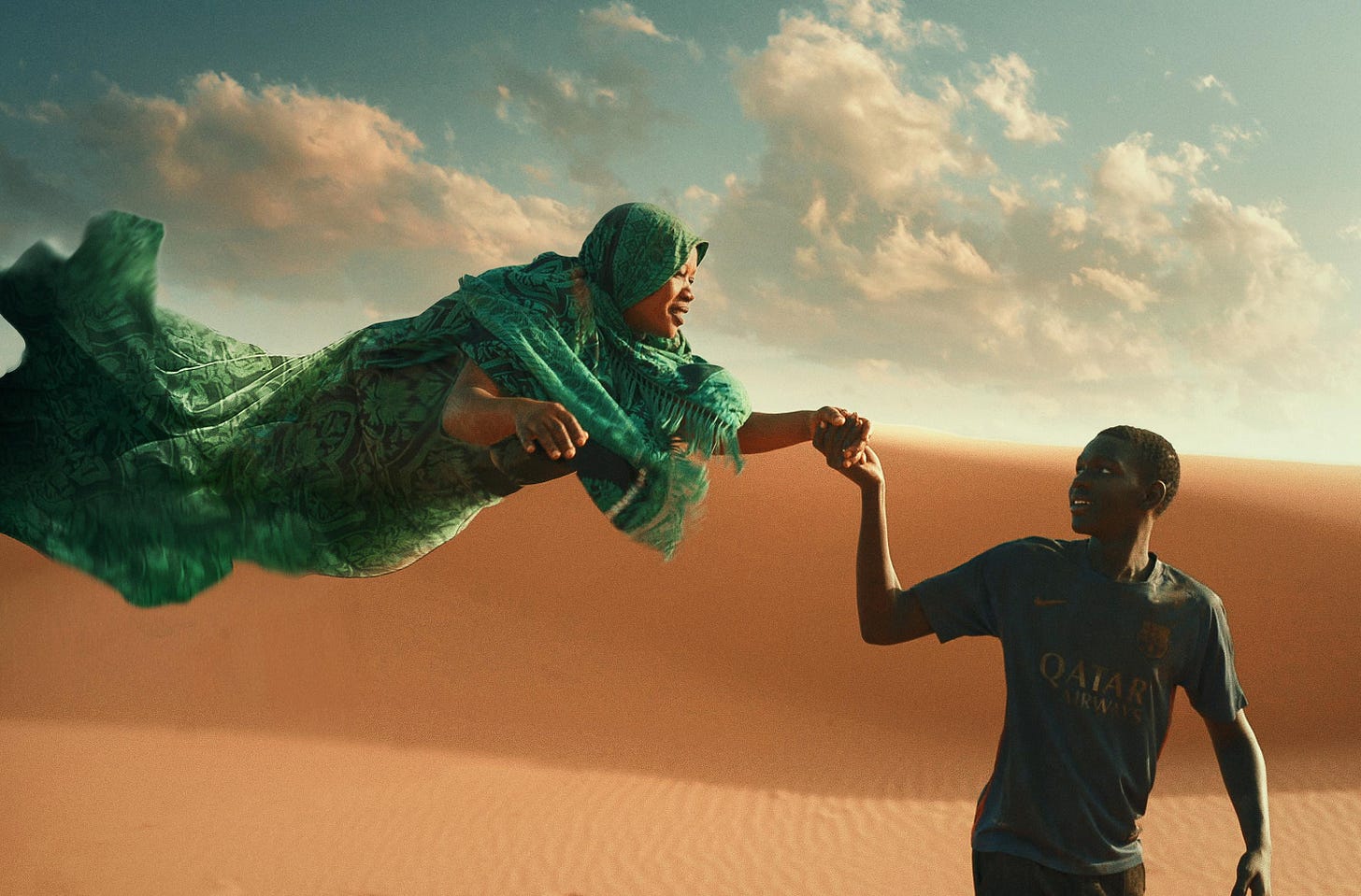'Io Capitano' takes the audience on a harrowing journey
Oscar-nominated drama kicks off Wisconsin Film Festival
(Photo courtesy of Cohen Media Group)
The Wisconsin Film Festival typically picks an uplifting crowd-pleaser for its opening night film. The last time the inaugural night was at the Barrymore Theatre in 2016, the first film was Taika Waititi’s “Hunt for the Wilderpeople.” Last year, the war in Ukraine loomed large over the opening night film, “Luxembourg, Luxembourg,” but the film itself was a funny and poignant comedy.
Matteo Garrone’s Oscar-nominated “Io Capitano,” which played Thursday night at the Barrymore Theatre to open the festival, was anything but funny or a crowd-pleaser. The film is a beautiful but harrowing drama following two naive Senegalese teenagers who make the ill-advised decision to trek across desert and ocean in an attempt to illegally immigrate to Europe.
“Io Capitano” is gripping, and reminded me of the late Roger Ebert’s description of film as an “empathy machine,” able to put us in the shoes of another person for a couple of hours and let us see what they see, feel what they feel. We’re with Seydou (Seydou Sarr) and Moussa (Moustapha Fall) every painful step of the way, and won’t soon forget their odyssey.
The film opens with Seydou, a handsome and soft-spoken 16-year-old, as he wakes up in his home in Dakar, his younger sisters playing and singing around him. Outside, the ladies of his community gather and talk during the day, and at night the streets are filled with music and dancing. Those streets may be more pothole than road, and the roof may be leaking, but despite the poverty, Seydou seems embraced and cared for in this warm, vibrant community.
But like teenagers the world over, he dreams of something better. He and his cousin Moussa have dreams of being famous musicians (“White people will ask for your autograph!”), or at the very least earning enough money in Italy to send back to their families. They’ve saved up a wad of cash, and sneak away towards a new life.
At first, the trip feels like an adventure, the cousins laughing and writing music lyrics on the bus. But the adventure soon becomes an ordeal, as they get caught up in the shadow economy of smugglers, conmen and thieves that exploits illegal immigration. They get their first sense that the journey may have been a mistake when they’re packed tightly into the back of a pickup truck that races through the desert. When someone falls off, the truck keeps going.
Garrone stays fixedly on Seydou as endures merciless bandits, punishing desert heat, and a terrifying stint in a prison run by criminals. Occasional dream sequences give Seydou (and the viewer) respite from the horrors he faces. And there are sometimes moments of hope, such as when a fatherly prisoner (Issaka Sawadogo) takes Seydou under his wing, that keep the young man going.
Garrone combines these harrowing circumstances with beautiful cinematography, such as the shots of the refugees stumbling across the vast desert dunes, or a small, overcrowded boat slicing across the ocean. But the most affecting image always remains Seydou’s expressive face, and his desire to not just survive but to help others along the way. Somehow, in the face of all that he endures, he never loses that innate compassion.
“Io Capitano” ends on a note of triumph for Seydou, which feels a bit false, knowing what travails likely await him and so many other undocumented immigrants who come to Europe. But the film has sparked overdue conversations in Italy about how the country treats migrants, so perhaps that’s the happy ending that matters.





They are playing this at our local indie theater and I’ve been wanting to see it. Thx for the thorough review